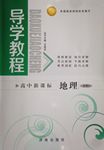题目内容
完形填空
阅读下面短文,从短文后各题所给四个选项(A、B、C和D)中,选出可以填入空白处的最佳选项,并在答题卡上将该项涂黑。
When I was a boy, we had several gardens around our old house. The largest one of all was used just for ____ potatoes.
I can still remember those days. The whole family ____. My mom, my elder brothers and I went to work ____ my dad turned the soil in the garden. It was my job to ____ the tiny seeds(种子) in rows, and my mom spread fertilizer (化肥) on them. My brothers then ____ them the newly turned soil.
Several months later, I would ____ the garden whenever I played outside, wondering what was going on ____ the ground. When harvest time came, I was ____ at the huge size of the potatoes my dad pulled out of the soil. They would be turned into ____ of roast potatoes, fired potatoes and my personal favorite: potatoes cooked in sauce. They would keep the entire family well-fed throughout the year. It was ____ a miracle (奇迹).
Looking back on those days makes me ____ how many other seeds I have planted in this ____ that have grown unseen in the hearts and ____ of others. How many times has my dad used something little things that I said or did to grow something ____. And how many times...
Every single day of our lives we step out into the ____ of this world. Every single day we plant ____ that can grow into something wonderful. We may never see the growth that comes from the kind words or loving ____ we share. I hope you always tend the garden around you ____. I hope you plant only goodness, ____ and compassion(同情) in the lives of people you meet. I hope every day you help miracles to ____.
1.A. selling B. preserving C. planting D. roasting
2.A. approved B. helped C. observed D. changed
3.A. after B. until C. because D. though
4.A. select B. examine C. compare D. drop
5.A. filled B. connected C. mixed D. covered
6.A. search for B. glance around C. give up D. wish for
7.A. across B. on C. under D. through
8.A. annoyed B. amazed C. embarrassed D puzzled.
9.A. meal after meal B. row after row C. life after life D. day after day
10.A. shortly B. truly C. mainly D. properly
11.A. recognize B. remember C. indicate D. wonder
12.A. process B. house C. life D. period
13.A. stomachs B. minds C. eyes D. bodies
14.A. expensive B. strange C. beautiful D. funny
15.A. part B. field C. garden D. corner
16.A. seeds B. trees C. vegetables D. flowers
17.A. mottos B. friends C. donations D. acts
18.A. with care B. by chance C. in surprise D. on time
19.A. confidence B. wealth C. peace D. power
20.A. return B. recover C. prepare D. grow
 导学教程高中新课标系列答案
导学教程高中新课标系列答案
